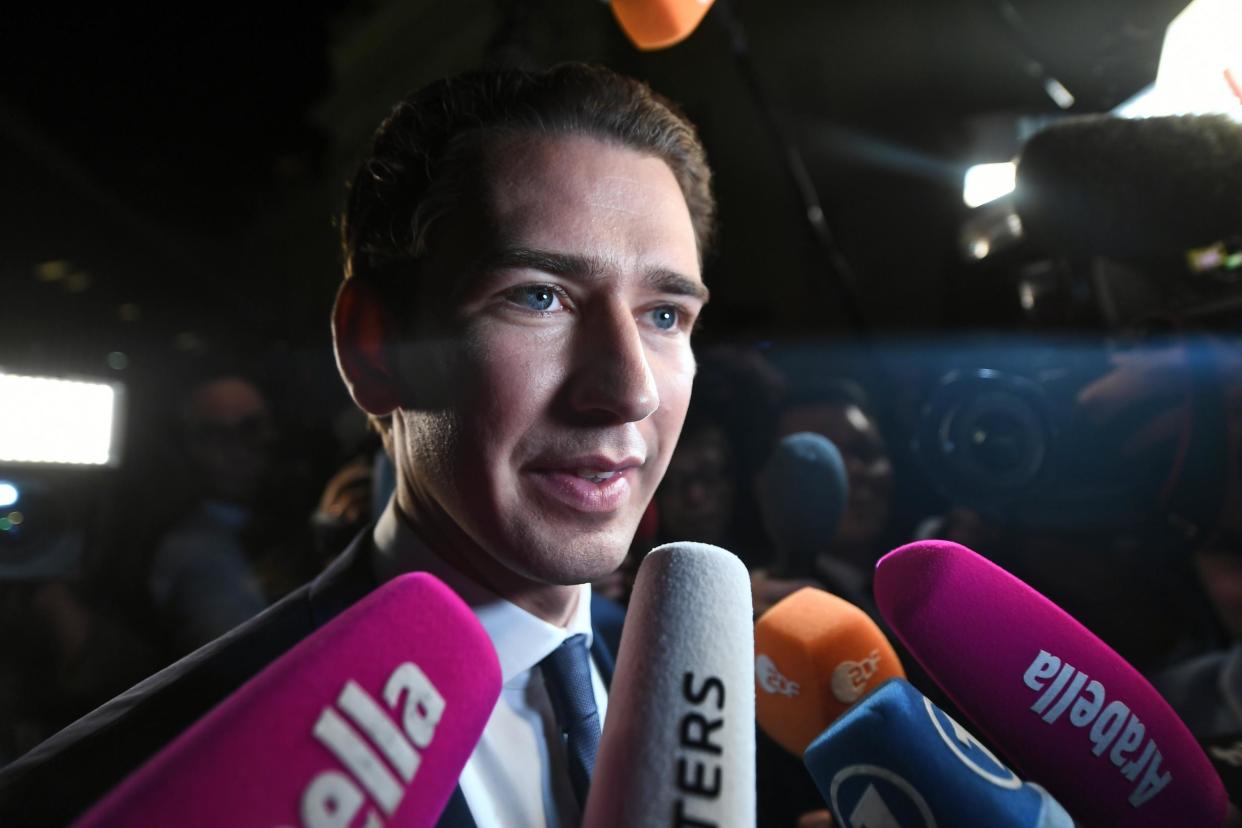Joy Lo Dico: Like Instagram, politics is onto the next young thing

“A man of 30 was still considered immature, and a 40-year-old not regarded as ready for a position of responsibility,” Stefan Zweig wrote of fin-de-siècle Vienna in his memoir The World of Yesterday. “There was one astonishing exception, when Gustav Mahler was appointed director of the Court Opera at the age of 38, and horrified murmurs ran through the whole of Vienna at entrusting the highest artistic institution to such a young man.”
Now Austria has, if exit polls are to be believed, entrusted its high office to a 31-year-old — one so cocksure that he has renamed the party after himself on the ballot papers. Sebastian Kurz only became the leader of the conservative People’s Party in May. He’s pro-EU but seemed a little too comfortable playing with the agenda of the Far Right for electoral gain.
All this youth will become an increasing irritant to European commentators as they examine their greying temples in the mirror each morning.
Italy, too, has a 31-year-old challenger for the position of Prime Minister. And this shortly after the election of Emmanuel Macron, who is now looking pretty mature at 39.
But there is a genuine reason to worry: Kurz, and the Italian 5-Star leader Luigi di Maio, come to embody those dangerous moments in history when the young man in a hurry seizes the pace, where the pendulum of politics begins to lose its steady rhythm between Left and Right, between ideas that have steeped over time, and lurches to a new agenda.
This unlocking is not always a bad thing but the urgency of it might give us pause for thought. Both the desire for the shock of the new, and the insatiable hunger of the media for another twist in the plot, leave politics beginning to look like a version of Instagram chasing the next big trend.
Not all young men are Mahlers. Those grey temples of the commentariat, who have seen this folly before, may soon become a badge of honour.
The stars who shine brightly on our Progress 1000 list
This week sees the publication of the Progress 1000 list, the Evening Standard’s celebration of the most significant people in London this year, with a special emphasis on the creative classes, among them designer Camille Walala and architect Amanda Levete.
I have been compiling the list for the last few months and my inbox has been peppered with questions from people asking if they’ve made the cut this year. My stock response has been this: if you aren’t on the list it is because you are part of a super-group of people who were too important to be listed. Only a few egos have been appeased by this.
Status is a fragile thing. There is a persistence of character and fine work that goes some way to determining who makes it in life, but there is also a series of accidents, happy or unhappy, that bring you to where you are. Very few people are glued into a place in society — see the reluctant Prince Harry. Most arrive by a mixture of ability and an accidental meeting —Meghan Markle?
Those who have worked hard for their position defend it vigorously. See President Macron, interviewed in Der Spiegel, stressing that he had not got to where he is by some divine right, but from a middle-class family. Some get there by just dumb luck.
As with any list, you cannot name every person who contributed to the success or prominence of those individuals. They are just the bright stars we can see with the naked eye.
Renting has its advantages too
Back on the Tory agenda comes Help to Buy, and now talk of stamp duty cuts to help young people get on the housing ladder.
But who will speak up for the renters? London will soon flip to becoming a city where more people rent than own their own houses. This isn’t automatically a bad thing — the freedom to move as your circumstances change, to hang your flower boxes in areas you could not normally afford, and not having to worry about when the roof needs replacing.
If you want a flexible labour market, it is logical you should also be in favour of a flexible — and fair — rental market.
Food for thought
Farewell avocados. Nigella Lawson has decreed that the new must-eat food is the pandan leaf from East Asia. She says it is the new matcha, referring to the green tea from Japan.
At least she wasn’t bigging up Spanish strawberries. Chris Grayling, the Transport Secretary, has been on television talking about food security should we crash out of Brexit, saying we would either have to import more from around the world — those Pennine slopes won’t be much good for growing matcha — or that British farmers will “dig for victory” by growing more food.
If Nigella would only start talking up the British spud, we might end with more rotund bellies and better GDP figures.

 Yahoo News
Yahoo News 
